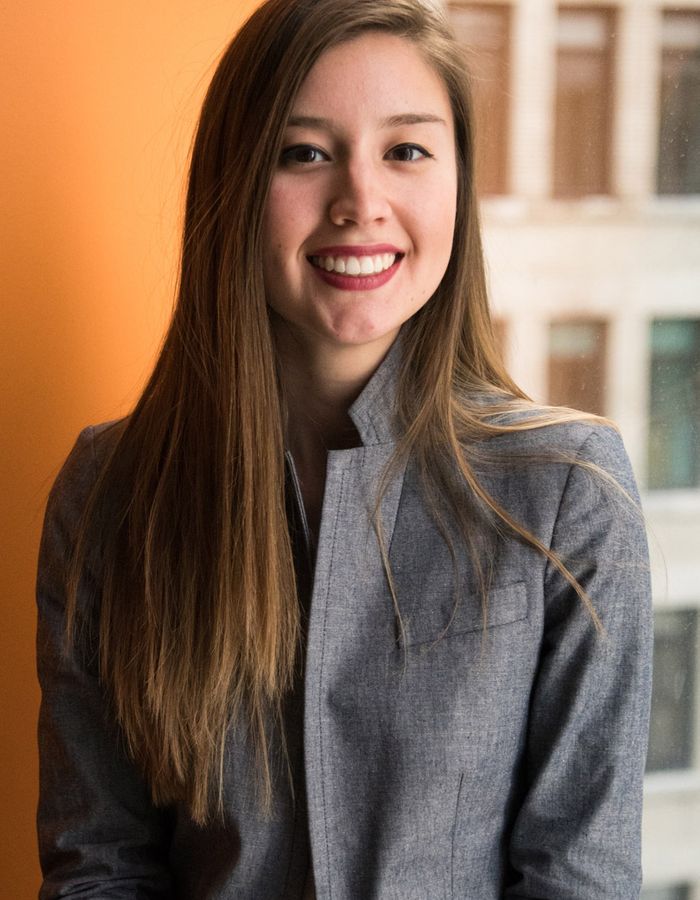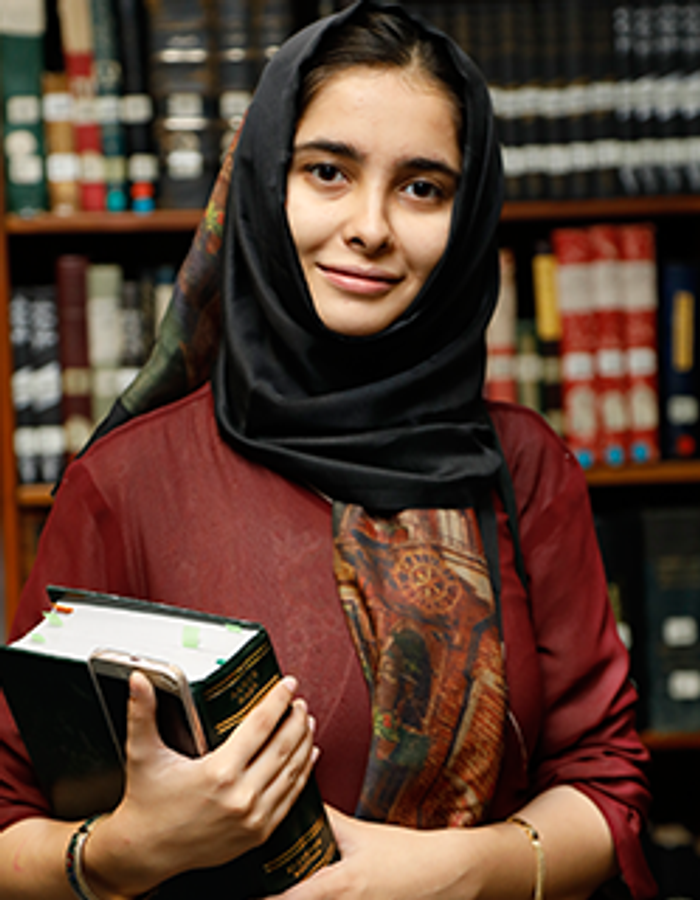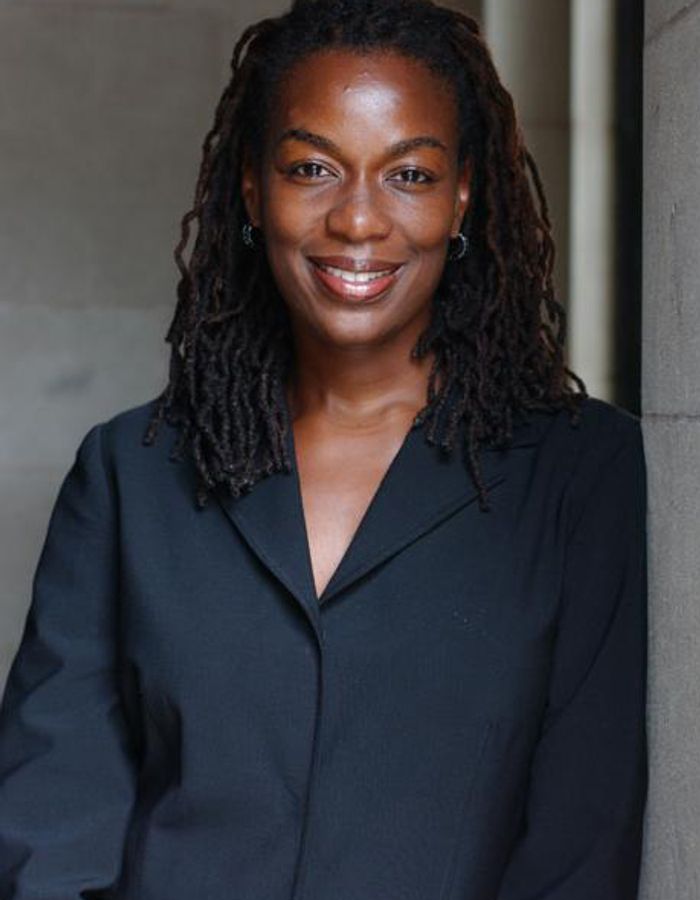How to build trust in a Crisis
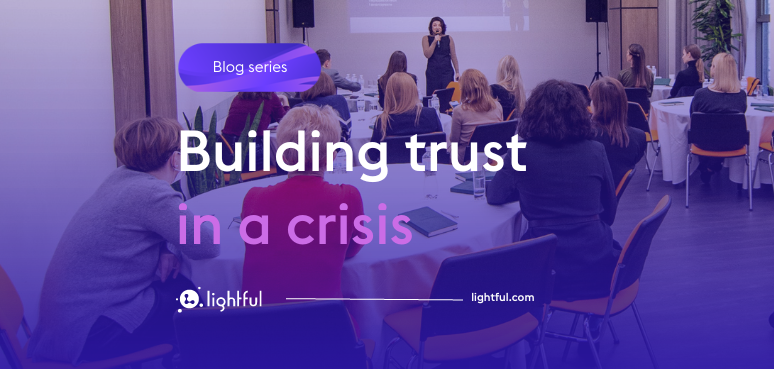
The Zagoriy Foundation aims to build a culture of giving in Ukraine, building trust is vital for them, but also incredibly challenging. We spoke to them to find out how they do it.
We’ve been fortunate enough to work with the Zagoriy Foundation, a charitable organisation based in Ukraine, whose purpose is to develop the culture of giving in Ukraine, through promoting patronage and philanthropy. They are trying to strengthen civil society organisations by making sure that they have enough, and the right kind of resources, knowledge, and support to fulfil their missions. They are an inspiring organisation and we share their goals, so we thought they’d be a really interesting organisation to talk to about building trust.
Building Trust is a big challenge in the modern world - but nonprofits are in a strong position to help build, rebuild and maintain trust. But what happens when the environment you are operating in changes completely, and very quickly? What if you are trying to build trust while facing the sharp edge of a crisis? How does trust-building work for nonprofits in a crisis or conflict?
We spoke to Liubov Rainchuk (Deputy Head) and Svitlana Bakhshaliieva (International Partnerships Manager) to find out what they’ve learned. They are both deeply connected to the mission of the Zagoriy Foundation and have some great insights to share.
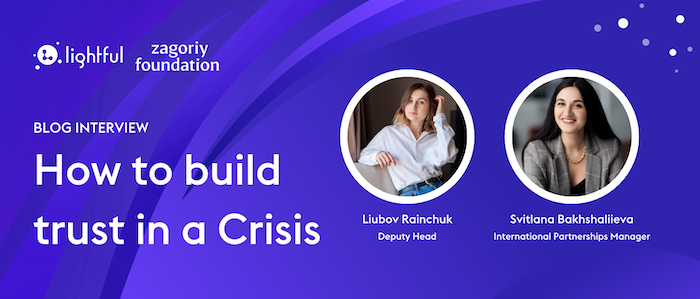
What role do you think trust plays in the nonprofit sector? And for Zagoriy Foundation specifically?
Svitlana:
Trust is essential and it is essential for every kind of relationship. It's essential in relationships between donors and recipients, between mass givers and the nonprofits they support, and between governments, international NGOs and local NGOs. It is increasingly important to ensure donors can be flexible, and that they support localisation, and for that they need to feel that they can trust local NGOs.
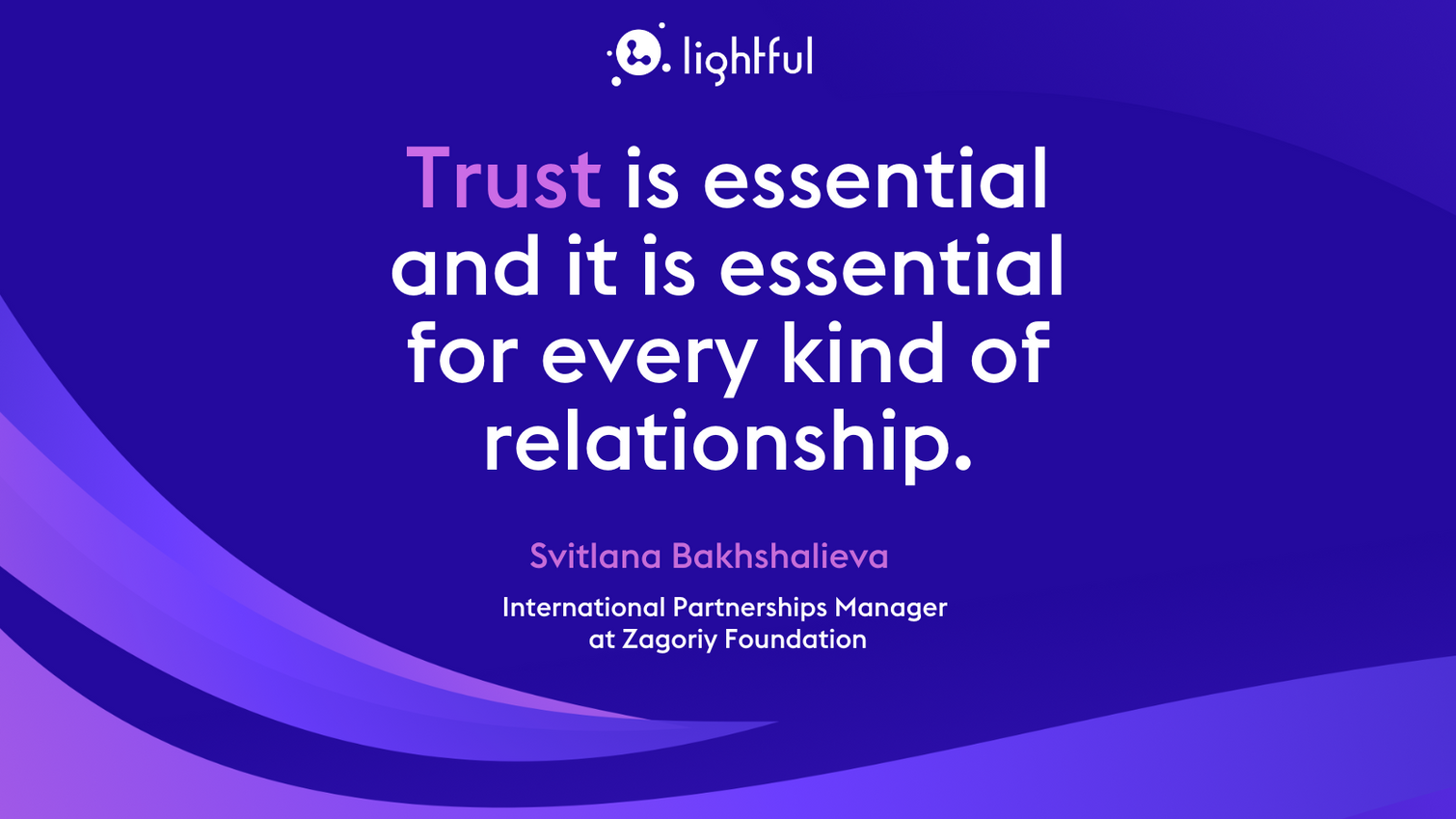
Liubov:
Well, trust plays a significant role in our mission of building a culture of giving, so we are trying to learn more about trust in charitable giving. What we've learned is that people do not trust institutions in Ukraine, and that leads to several problems. For example, they do not do institutional giving; they mostly give to volunteers. And that leads to the problem that volunteers do not need to report their activities according to the law. This provides the potential for fraud and scams and so on.
So trust is essential for our purpose and we see it is an important part of our role, to help enhance trust through our projects. We're trying to learn and to help organisations to work according to Ukrainian and international principles and best practices. We hope that, as some organisations' working practices improve, it will lead others to try to be on the same level. This will then improve the perception of charitable organisations, and trust will grow.
Has the role of trust changed since you had to pivot your activity after the invasion of Ukraine by Russia?
Liubov:
Yes, we have seen changes during the war. We conducted a study called “Charity, in times of war”, in June 2022 and it showed that the level of trust actually increased during this period. A lot of local Ukrainian charitable foundations and NGOs took a lot of responsibility for providing humanitarian aid, supporting people, and helping with the recreation in the very first month of the invasion. So when international aid providers arrived, there was already a system in place and they had to fit in to that.
So yes, the level of trust has changed. But it's not like, “wow now we have trust! Great, let's work with it!” It's more that we now have a trigger that we can pull to help drive exposure more, and further enhance the reputation of local Ukrainian charities and NGOs. But we need to work really carefully in this situation because the level of trust is not very stable. Currently people feel trusting, because they see the immediate impact of the NGOs’ work. But someday soon, they might read about a scandal or see comments from influencers, and they will rethink their position.
Svitlana:
Yes, we want to see a stable level of trust. So we must engage with this and we must ensure that this level of trust doesn't fall. And this is the job of every NGO and foundation in Ukraine now, to keep this level of trust high.
Liubov:
Yeah, it's like all PR and reputation management, it's ongoing work, over years. And it takes more to build it than simply a one-off event, or some tweet that you posted eight years ago.
What are some of the tools or techniques you use to build or maintain trust? Are any of them online?
Svitlana:
Well, first of all, I think that the most important thing is open communication. So we try to build open communication at every level, with our donors, with our partners, with our contractors and also with our audience on social media and any other communication channels. We also do some work on debunking myths and communicating the major challenges of NGOs and nonprofits in Ukraine. We think it is very important to raise awareness about how the sector works, what their needs are now, how people can help and why it is important to support nonprofit organisations.
And the second thing I think is very important is reporting transparency. Reporting and the openness of procedures are crucial to raise trust among people. Anyone, at any time, should have access to check what the foundation is actually doing, how funds are used and can track expenditure to real change they see. So people must be able to review reports so that they have the chance to see the results that the foundations and NGOs are actually implementing.
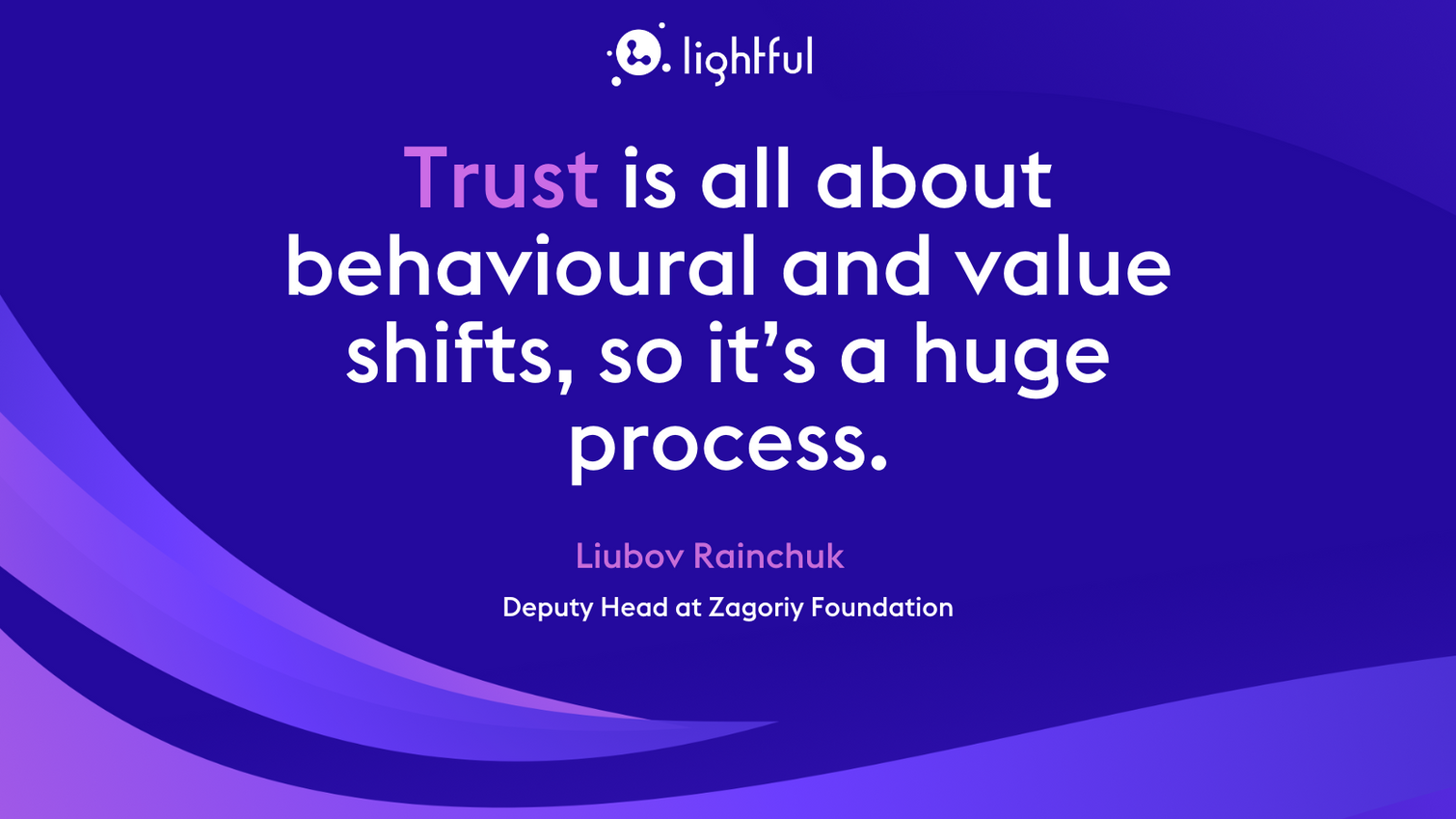
Liubov:
We're trying to work with stakeholders on every level. So firstly, we work with civil society organisations, providing mentorship where they might need it; supporting their learning and procedures for instance. And on another level, we are trying to disprove myths, or overcome obstacles to giving that people might have heard somewhere. So we work with information campaigns, trying to promote some of the most important slogans and messages to the audience that is interested in giving. Trust is all about behavioural and value shifts, so it’s a huge process. We are just at the beginning of this process, but I think that we are doing everything right.
What are the challenges of building trust? Specifically online?
Liubov:
Yes, online is the main channel for most people, it's something that we cannot ignore. For some time we have been trying to measure what kind of channels people use the most to learn about charity. It used to be television, but the usage of social media and the internet has been increasing for the past three years so we can anticipate that this will be a long-term trend.
We recognise that we can reach people online in a way that is almost impossible offline. But we also suffer from challenges because of blackouts and problems with internet connections and so on. But online was, and is more than ever, an important channel that you have to know how to use to deliver the messages that you want. And you need to work with some people who don't believe in you and who don't agree with your position, but if you do that, you will reach many more people than you can with your existing audience and partners.
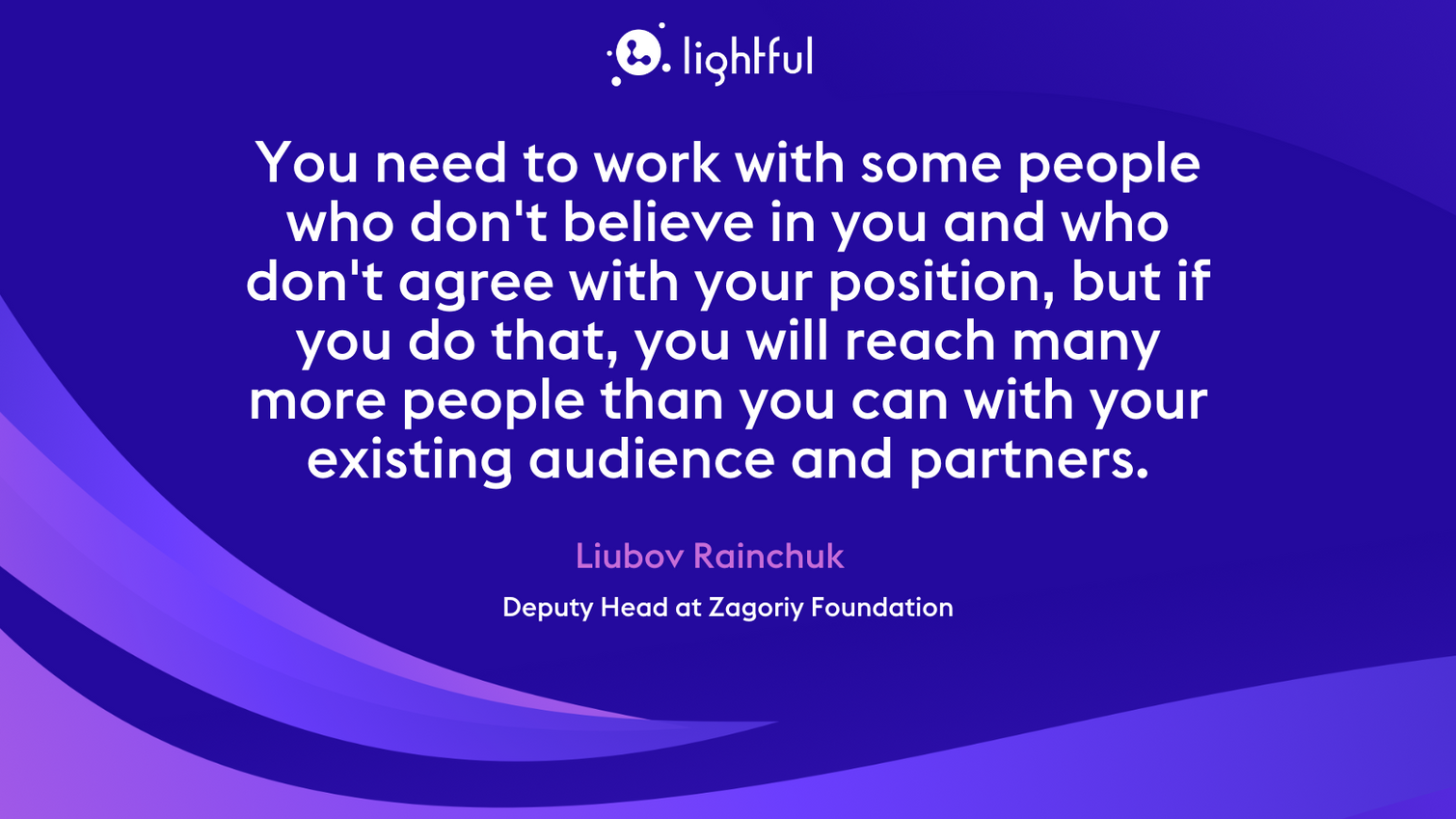
Svitlana:
The situation in Ukraine is that we didn't have a long history of people participating in nonprofit activities and now suddenly we have a huge surge in interest and lots of attention is being paid to the activities of nonprofits. But that means that people don't really understand how the sector works. I believe that this lack of knowledge is one of the challenges that we have to conquer, and we have to use our platform to help people understand how the sector works.
I think that doing this will also build trust with them, and build trust across the whole sector. This lack of knowledge sometimes causes breaking news stories that people use to back up their prejudice towards the NGO sector. So, I think we (Zagoriy and our colleagues in the sector) need to use large media publications to share information and to raise awareness about the sector and its actors.
Liubov:
And it’s not only about publicising that you need donations and support, but you also need to provide information about how you work, spread stories, and make people interested in you. As nonprofits we're not fighting against each other for attention, we are fighting against the whole interesting world that is going on. So we need to find all the ways we can to communicate in ways that pique our audiences’ interest whilst still having the resources and information needed to fulfil your mission and to get the impact you want.
It's all about communication. We have a lot to learn from our partners, grantees and others. We don’t believe that we know everything, they can help us learn because they work more closely with beneficiaries than we do. And they know what they want to achieve.
And from time to time I see this problem that people are overwhelmed with all the information they have, and all the requirements donors might have. So much of the challenge with building trust is simply the volume of everyday work. Nonprofits need to work through their daily responsibilities and simultaneously work on policies and procedures, learn more, share stories, and many more.
And we also hear this question from some people, from time to time “why do you receive a salary? It's a charity… please do your eight hours per day, but do not expect us to pay for this because we pay for the humanitarian aid.” And it's something that indicates that there is still much trust to be built.
Do you have any final messages or advice?
Liubov:
It's all about why we agreed to have this conversation, for example, it's also about sharing and learning something new. From our perspective, we see some trends emerging in the sector, but we also realise that there is so much going on in the world that we need to learn from. And what I would like to suggest to everyone is that whatever you are, whatever your position is, try to be an open-minded person because if not, you will be stuck in your current mindset and position and you will think that you know everything. At that point, you know nothing because the world is changing really quickly.
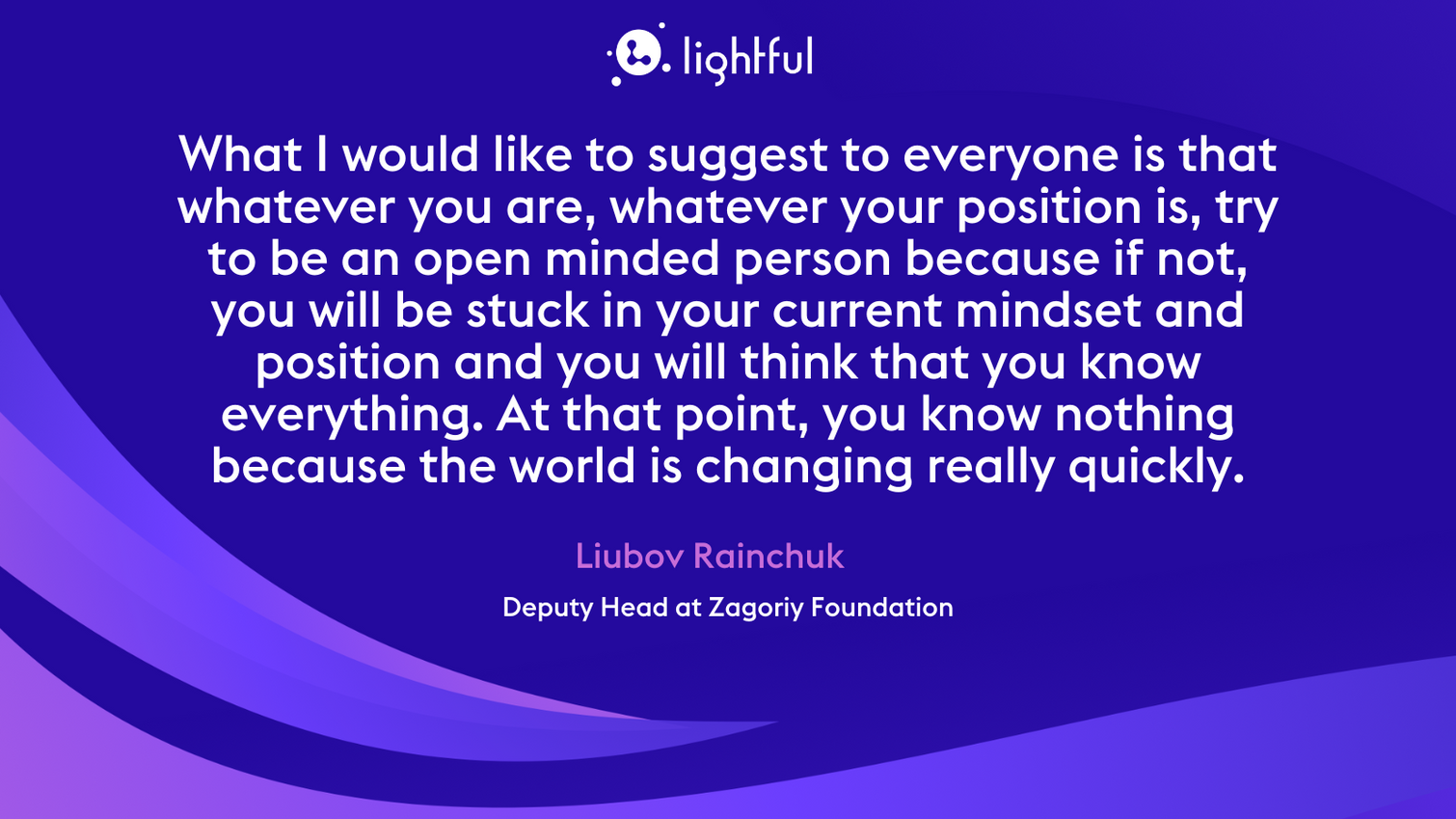
Svitlana:
I agree that open-mindedness is key in our modern world.
Liubov:
And flexibility. But also being strong enough to hold your own position, you know, you're flexible, but you have your own agenda as well.
Key takeaways for building trust online in a crisis
- Communication is key - communicate and be transparent with all of your stakeholders.
- Help people understand how your organisation works as well as the impact that you have /the cause area you are working in.
- Tell great stories.
- Don’t rush it - it takes time and concerted effort.
- Once you have built some trust don’t take it for granted - it could be damaged by misinformation / external forces.
- Be open to learning from others.
Follow the Zagoriy Foundation

We hope you have found reading Svitlana and Luibov’s insight as interesting and helpful as we did talking to them. You can learn more about Zagoriy Foundation, donate or subscribe on their website.
Subscribe to our newsletter

This post is part of a series we’re producing with some of the great foundations, philanthropists, institutions and nonprofits we work with. If you want to be sure to catch the next ones, please subscribe to our newsletter and follow us on LinkedIn.
Latest articles
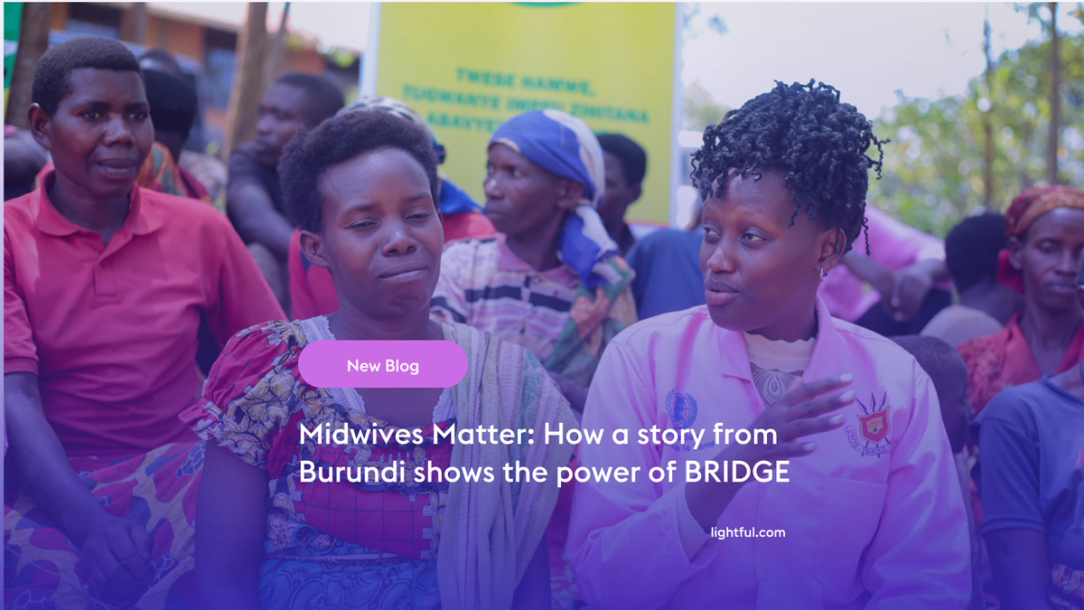
Over the past year, Lightful and the International Confederation of Midwives (ICM) have supported Midwives Associations across Africa, South Asia and the Eastern Mediterranean to build their digital confidence through our BRIDGE programme. These organisations were starting from very different places, but all shared the same goal: to use digital tools to strengthen their voice, raise their visibility and advocate for better outcomes for women and babies.
Related posts

At Lightful, our commitment to supporting nonprofits in their mission to do the greatest good drives our exploration of the latest technological advancements.
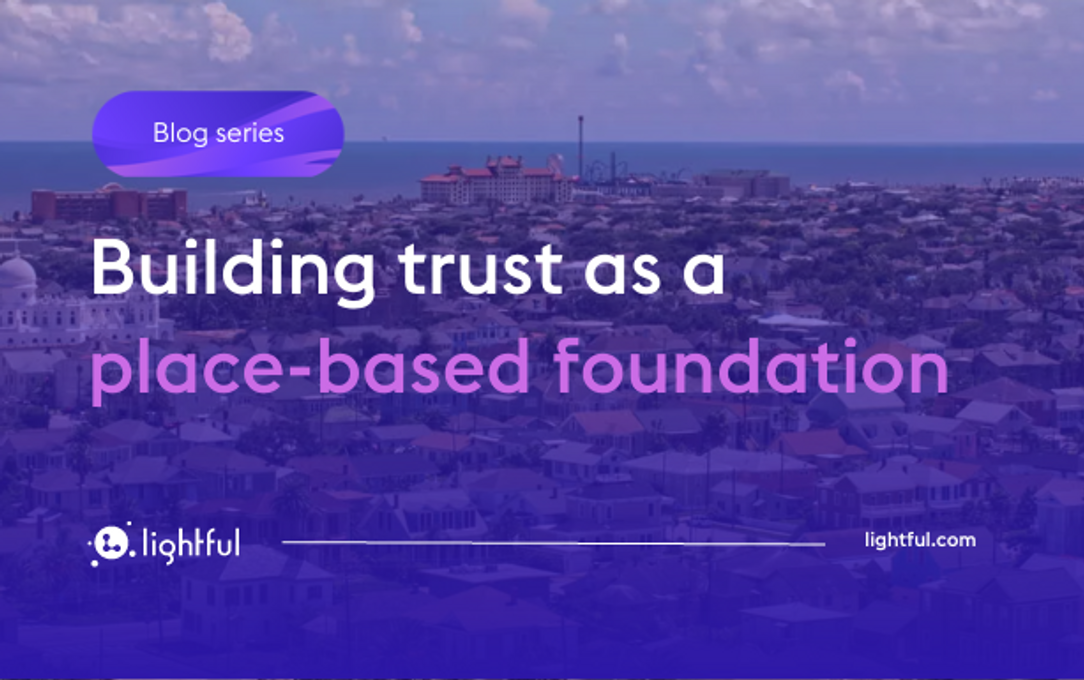
The Harris and Eliza Kempner Fund is a private, place-based family foundation based in Galveston, Texas. Their mission is to invest in the long-term success, sustainability, and well-being of Galveston and its residents. They do this by funding local organisations that are integral to the community, addressing historic disparities, increasing access to opportunities, and contributing to the cultural fabric of Galveston.
See who we help
Contact us
Want to learn more?
Email Jonathan and start a conversation




